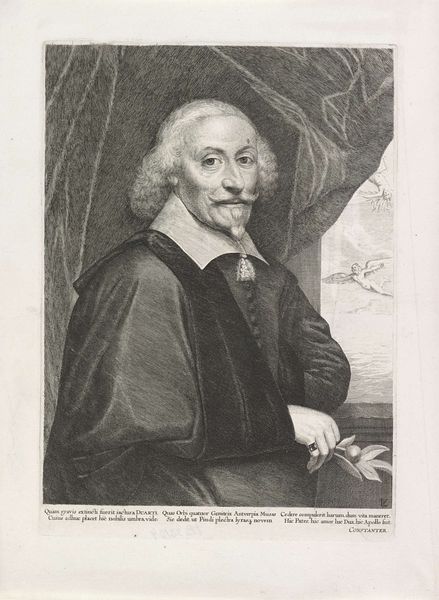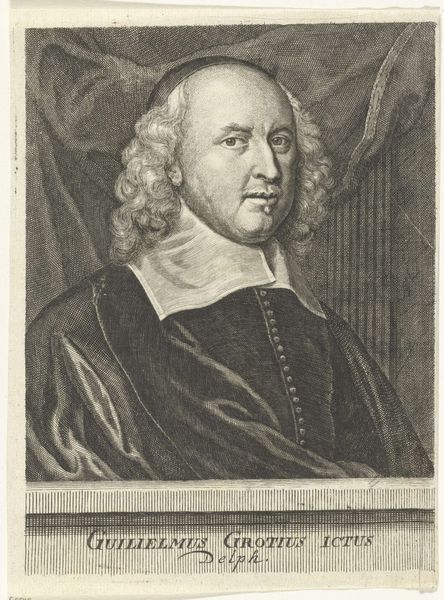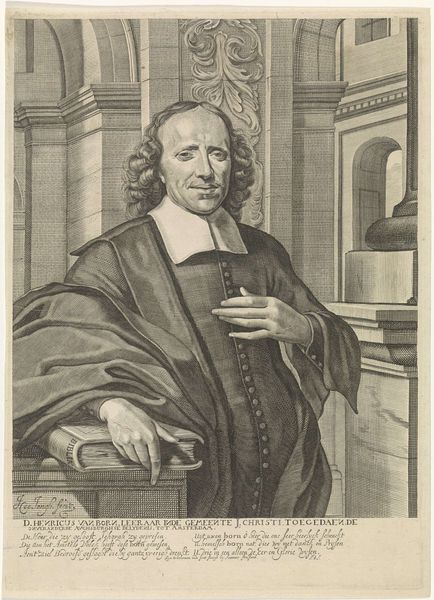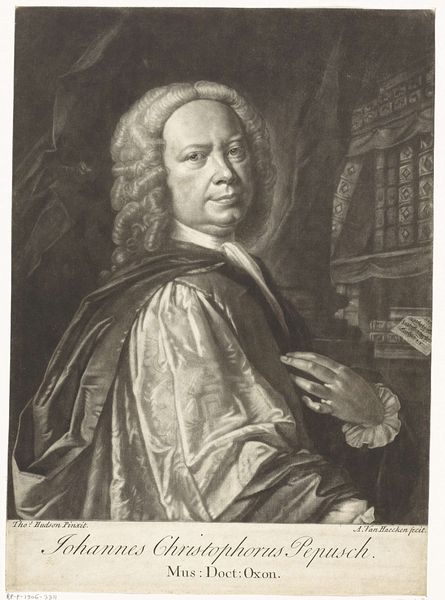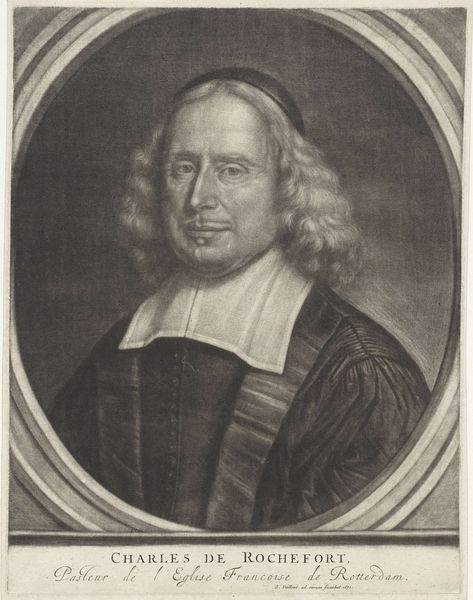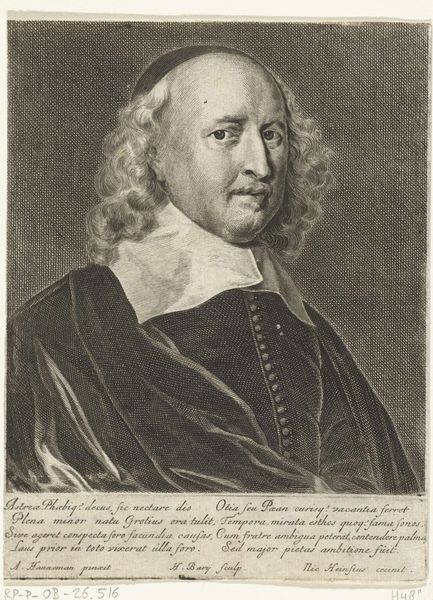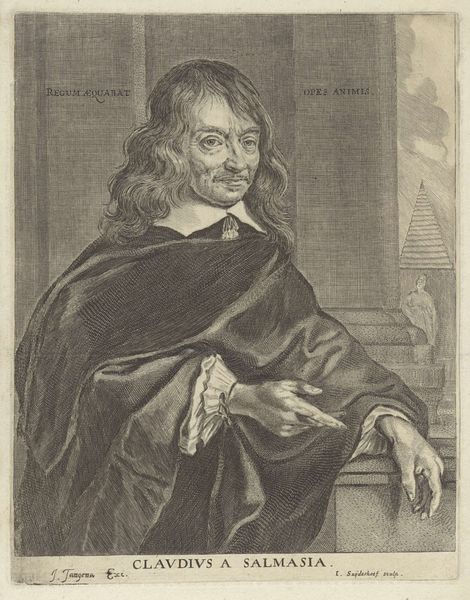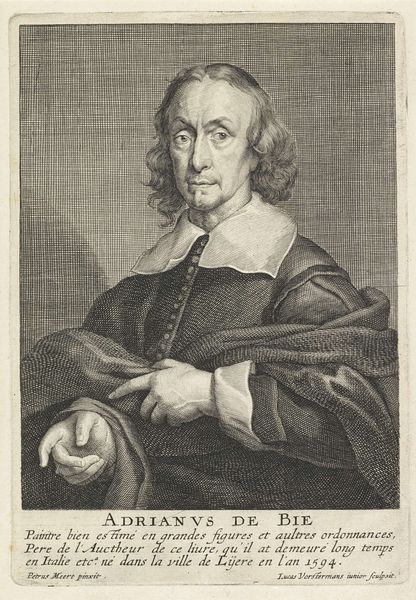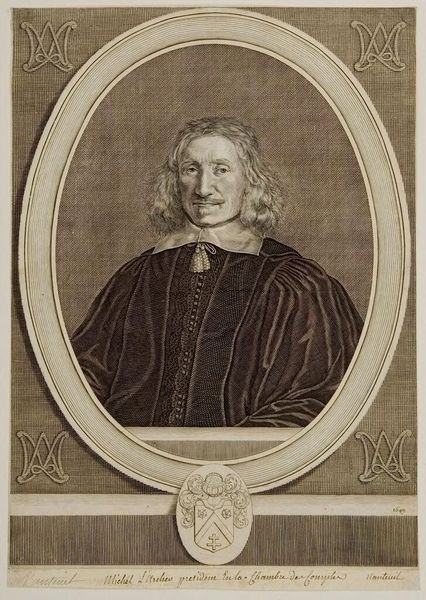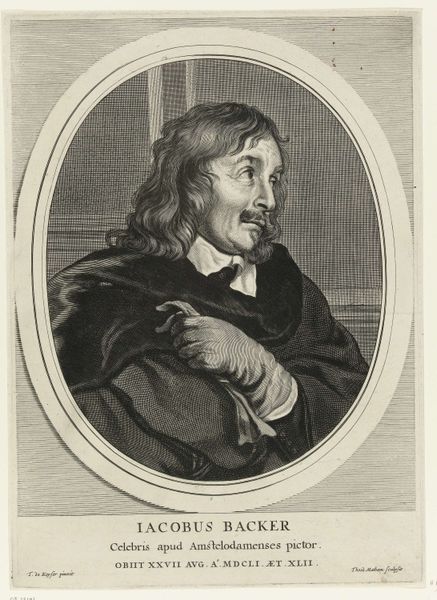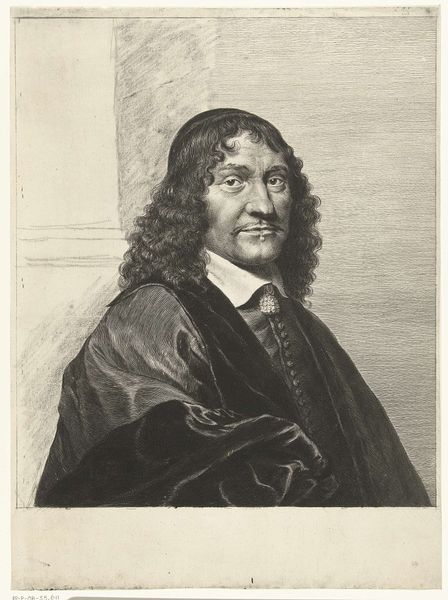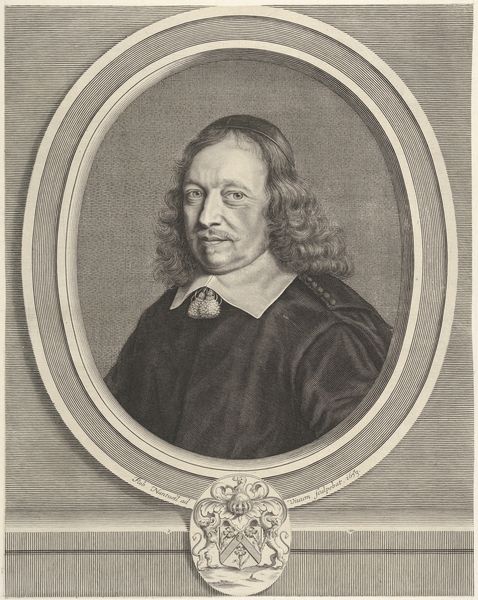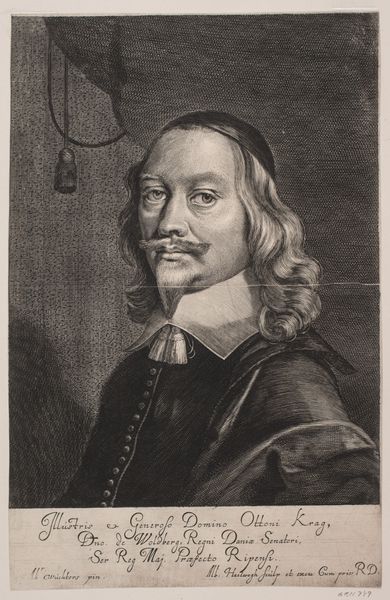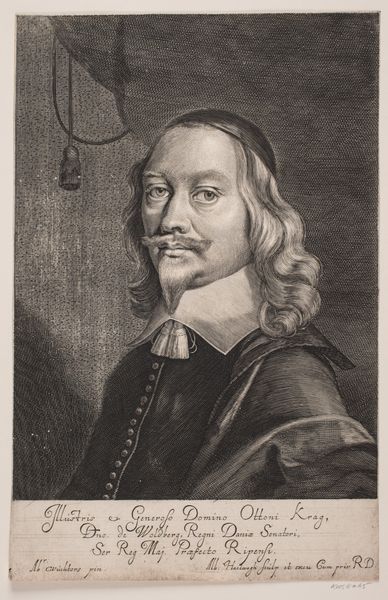
metal, ink, engraving
#
portrait
#
baroque
#
dutch-golden-age
#
metal
#
ink
#
history-painting
#
engraving
#
portrait art
Dimensions: height 374 mm, width 243 mm
Copyright: Rijks Museum: Open Domain
This is Theodor Matham’s portrait of Andreas van der Kruyssen. It’s an engraving, meaning it was made by incising lines into a metal plate, inking it, and then pressing it onto paper. The result is an image with a striking sense of depth and detail. Notice the way Matham uses the varying thickness and density of lines to create a sense of light and shadow, and the texture of van der Kruyssen’s clothes and hair. The image has a tactile quality, despite being created through a mechanical process. The technique demands a high level of skill and precision. Each line had to be carefully planned and executed, requiring a deep understanding of the materials. Engraving was a labor-intensive process, often involving workshops of artisans working together. The finished prints could then be widely distributed. Thinking about the production of this print allows us to appreciate the craft involved, and to consider its role in a wider system of labor and commerce. It challenges our assumptions about the division between art and craft.
Comments
No comments
Be the first to comment and join the conversation on the ultimate creative platform.
